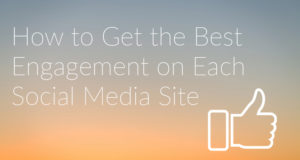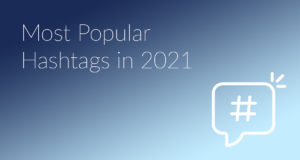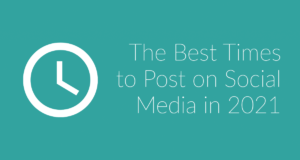We all remember when the Occupy Wall Street movement happened … and then vanished just as quickly. How about when young people in Egypt used Facebook to organize protests against the government? These are two examples of how social media has been used for activism, but with vastly different results. After all, Egyptians fought for the right for freedom in an oppressed society and succeeded while Occupy Wall Street was only successful at, well, camping.
No matter how you look at it, one thing becomes clear: Social media gives citizens have a powerful tool. Never before have small groups of people been able to reach such large audiences. This is great for small businesses that are just starting up, but the social shifts are a fascinating, if unintentional, side effect.
Two Sides of a Coin
There is no question that social media has increased people’s ability to be involved in politics, but the idea is often better than the reality. This has led to a new idea, called “slacktivism.” Basically, this is participating virtually in a political event or idea, without actually doing anything in real life. You can like, follow or share everything from SPCA events to your favorite politicians. Pretty much everyone is involved in slacktivism in one way or another.
Here’s the thing with that – we’re getting very accustomed to viewing ourselves and other people on a global scale. Some critics consider it a passing fad, which does have potential to be true. However, it’s becoming more likely that this is something that may permanently change the way we view the world. The potential for real, revolutionary change is stronger than it’s ever been before.
Breaking Boundaries
One of the most powerful tools for social-media activism has been YouTube. Obviously, anyone can post whatever videos they like there, but even YouTube has been surprised by some of the videos that have been posted. They give people an outlet and more importantly, they let people see what’s happening. Information spreads like wildfire, and the proof, as they say, is in the pudding. A video on YouTube goes viral and makes its tour of Facebook and Twitter. Usually, within 48 to 72 hours, major news organizations start picking them up.
Even the 2014 Olympics had their fair share of scandal. Members of the band Pussy Riot were attacked in Russia by members of the Cossack militia. Although this did not garner any kind of serious political repercussions, it certainly made an impact on the general U.S. population. All it took was one video by an amateur videographer and the incident became worldwide news.
More than we Think?
Remember when television first came out? No? Me neither. I have, however, been around long enough to realize what a huge effect it’s had on people. There are many naysayers out there who want to discuss how social media is a fad and it’ll never last. Amazingly, this is very similar to what was said about television, computers, airplanes and pretty much every other invention. Television, however, quickly became a tool to spread news.
Think about how much consumer power has changed in the last decade. It wasn’t terribly long ago that an accident at work was supposed to be covered by the employer, but that was not guaranteed. Now, a workers compensation law firm has to protect your rights. If you agree to a gag order of some kind, then they can silence you. Otherwise, a single person can suddenly reach an audience of millions. Imagine the pressure that adds!
This is where the overall impact of social media can start to be felt. Of course we can use these tools for entertainment and keeping in touch with buddies from high school, but that’s just the surface. We can also use them to alert people to shocking situations, and to make them feel it in their homes. We can use it to protect ourselves. We can’t solve world hunger or end an attack by liking something, but we do acknowledge it, and we’ve agreed to help spread the word. Not everyone will take the next step and actually do something, but some people will. Those are the ones that matter, and every like, share and comment gets you one (or one hundred) people closer.
About The Author:
 Scott Huntington is a writer, blogger, and social media expert. He lives in Pennsylvania and with his wife and son. Follow Scott at @SMHuntington or check out his blog, blogspike.com
Scott Huntington is a writer, blogger, and social media expert. He lives in Pennsylvania and with his wife and son. Follow Scott at @SMHuntington or check out his blog, blogspike.com
 Social Media Data Insights & Resources for Social Media
Social Media Data Insights & Resources for Social Media




